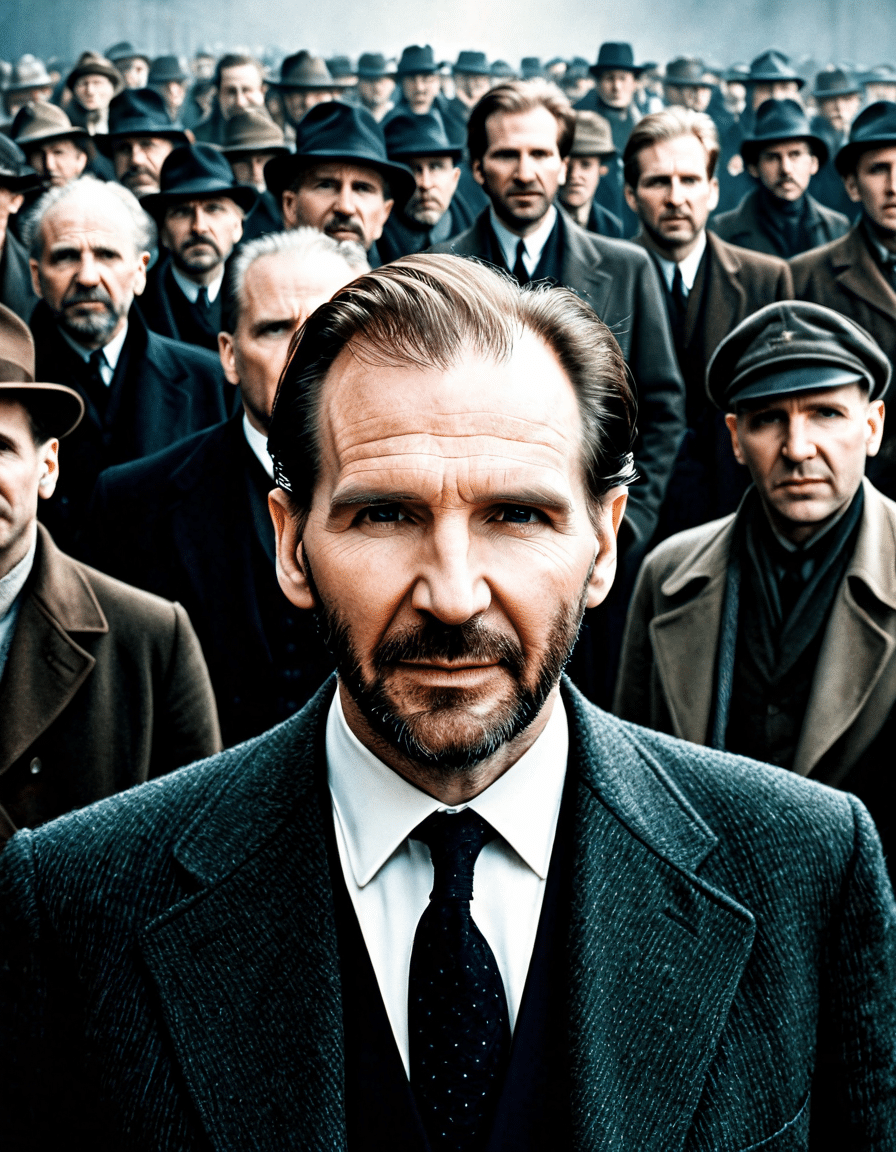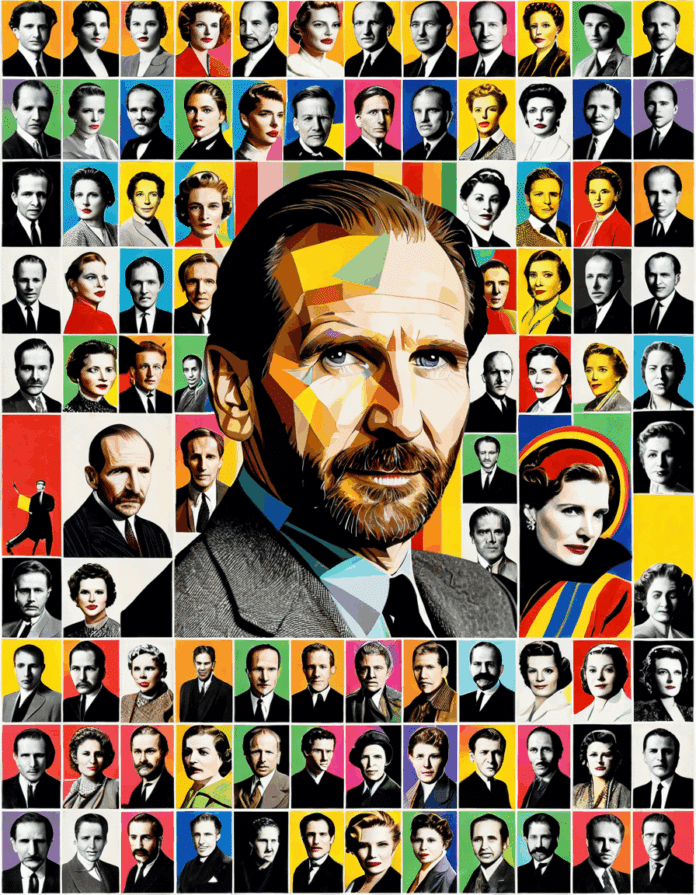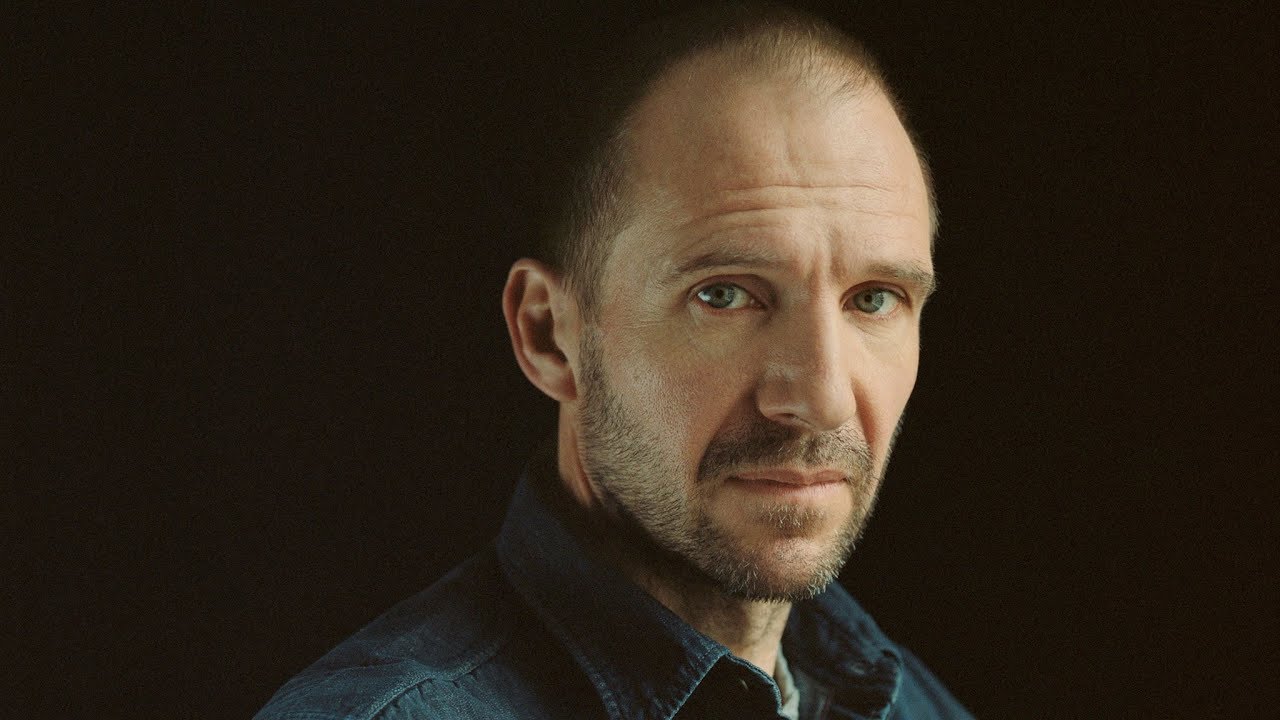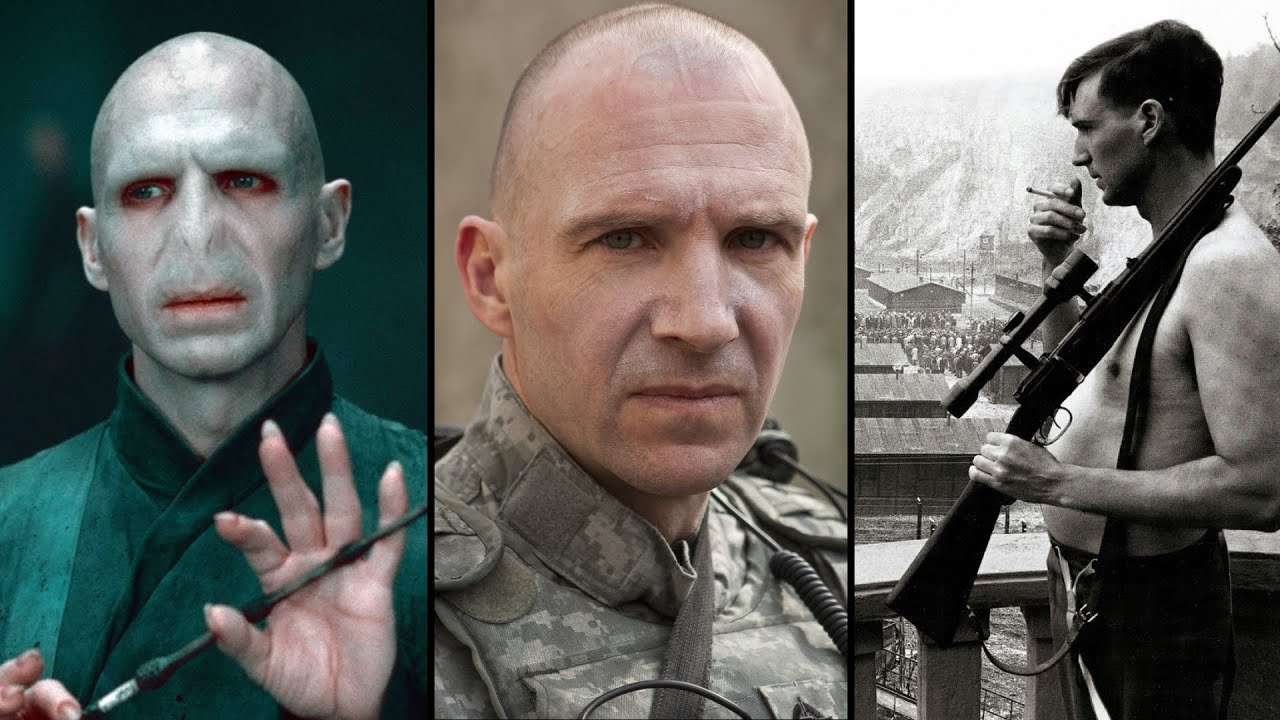Ralph Fiennes has carved out a leading role in cinema that challenges expectations and pushes boundaries. His impressive filmography includes several pivotal films, each significant in its own right. This article delves into seven Ralph Fiennes movies that not only showcase his extraordinary talent but also altered the cinematic landscape, influencing storytelling, character depth, and audience engagement in unforgettable ways.
Transformative Ralph Fiennes Movies: A Deep Dive into the Landmark Films
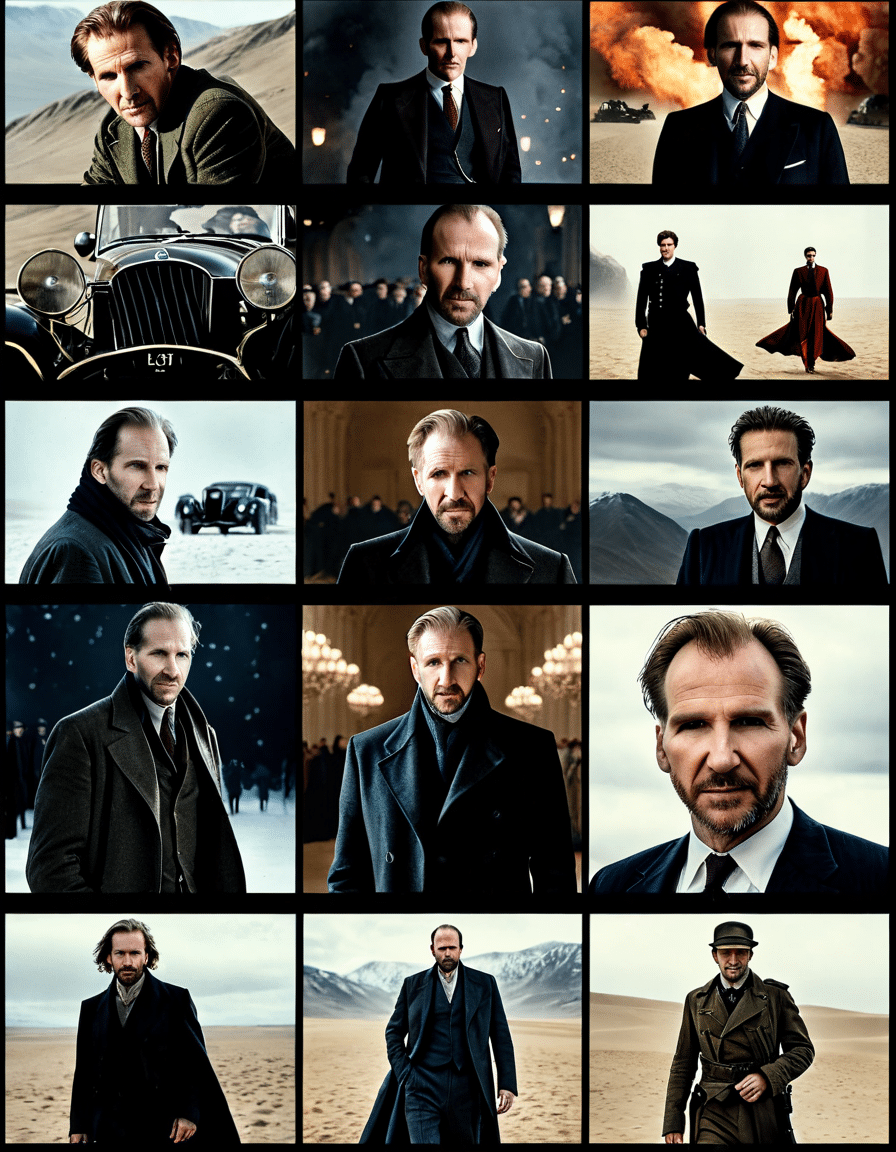
1. Schindler’s List (1993)
Few films are as harrowing as Schindler’s List, directed by Steven Spielberg, and Ralph Fiennes’s portrayal of Amon Goeth is remarkable for its chilling precision. Fiennes stepped into the shoes of the brutal Nazi commandant, delivering a performance that explored the nuances of evil. His depiction of tyranny, cruelty, and indifference to suffering exemplified a new level of villainy that challenged audiences to confront the most disturbing aspects of humanity. The stark black-and-white cinematography and haunting score set a revolutionary standard for historical dramas, making this movie a cornerstone of Holocaust representation in film.
Schindler’s List didn’t just tell a story; it drew viewers face-to-face with history, forever altering how filmmakers approach narratives about tragedy. In this film, Fiennes demonstrated how a character could evoke both horror and fascination, reminding audiences that evil can be performed with unsettling charm. The film’s distinction lays not just in its storytelling but in its ability to provoke reflection on morality, identity, and the human condition.
2. The English Patient (1996)
The English Patient, directed by Anthony Minghella, showcases Fiennes as Sir László de Almásy, a man whose poignant love story intertwines with the chaos of World War II. The film’s nonlinear narrative structure challenged viewers to embrace a complex storytelling format that deviated from traditional linear arcs. With beautiful cinematography and lyrical dialogue, it captured the essence of enduring love and profound loss, winning nine Academy Awards, including Best Picture.
Fiennes’s portrayal resonated with audiences, emphasizing the character’s emotional turmoil and vulnerability. This film encouraged filmmakers to take risks with narrative forms, redefining romantic cinema’s boundaries. Today, it stands as a reminder of how love stories can, indeed, be multi-layered and piercing.
3. Harry Potter and the Goblet of Fire (2005)
When Fiennes entered the world of Harry Potter as Lord Voldemort in Harry Potter and the Goblet of Fire, it marked a paradigm shift for many young audiences. His transformation into the Dark Lord was groundbreaking, employing an impressive combination of CGI and makeup effects that captured the imaginations of fans worldwide. The film introduced a darker tone to the series, elevating it from playful fantasy to deeper explorations of fear, prejudice, and the often-polarizing battle between good and evil.
Fiennes’s ability to evoke dread with his performance made him an unforgettable villain. This role not only cemented his status as a versatile actor but also helped the franchise grow into a cultural phenomenon that shaped the landscape of children’s cinema for years to come. Spectators were faced with a more profound conflict than ever, truly engaging with the moral complexities of the characters involved.
4. The Constant Gardener (2005)
In The Constant Gardener, Ralph Fiennes delivers a poignant performance as an English diplomat who uncovers a conspiracy in the pharmaceutical industry. This political thriller marries a love story with hard-hitting social commentary, prompting viewers to consider pressing issues like corporate malfeasance and human rights violations in a global context. The film’s approach led audiences to reflect on the ethical dimensions of globalization, making it essential viewing in an increasingly interconnected world.
Fiennes’s character navigated personal loss while challenging the systemic injustices embedded in global politics. This layered storytelling paved the way for social issue-oriented films that adopted a more serious tone, allowing cinema to spark conversations about real-world implications. The Constant Gardener remains a powerful testament to the intersection of romance and activism.
5. Coriolanus (2011)
Fiennes stepped into the director’s shoes for Coriolanus, a Shakespearean adaptation that resonated in contemporary settings. Marrying the classic text with modern warfare themes, he revitalized Shakespeare for a new audience. His commitment to authenticity brought a gritty realism to the text, showcasing timeless themes of power and betrayal that still ring true today.
With this adaptation, Fiennes merged theater and film in innovative ways, illustrating that classic narratives could maintain their relevance across time and formats. Coriolanus opened the door for other filmmakers to experiment with adaptations, showcasing the richness of Shakespeare’s work while challenging the notion of what a modern film could be.
6. Grand Budapest Hotel (2014)
In Wes Anderson’s visually striking Grand Budapest Hotel, Fiennes breathed life into the charismatic concierge M. Gustave. His performance was a masterclass in comic timing, perfectly balanced with underlying pathos, showcasing how humor can coexist alongside sharp social critique. This film also set a new standard for visual style in indie filmmaking, with its unique aesthetic influencing many filmmakers following its release.
Fiennes’s role illustrated how comedic protagonists could drive complex narratives, enriching the ensemble cast’s dynamics. The film’s craftsmanship in both narrative and style attracted critical acclaim and captivated audiences around the globe, proving that humor could carry significant weight within serious themes.
7. The White Crow (2018)
Fiennes’s directorial efforts in The White Crow highlight the life of ballet dancer Rudolf Nureyev, blending biography with artistic storytelling. His portrayal of Nureyev’s mentor captures essential themes of identity and the quest for freedom. This film challenged conventional biopic storytelling by incorporating choreography and visual artistry, crafting a singular narrative experience.
By fusing different artistic elements, The White Crow blurred the lines between dance, politics, and personal history. This innovative approach encouraged future filmmakers to venture into uncharted territory while exploring the intersections of art and life.
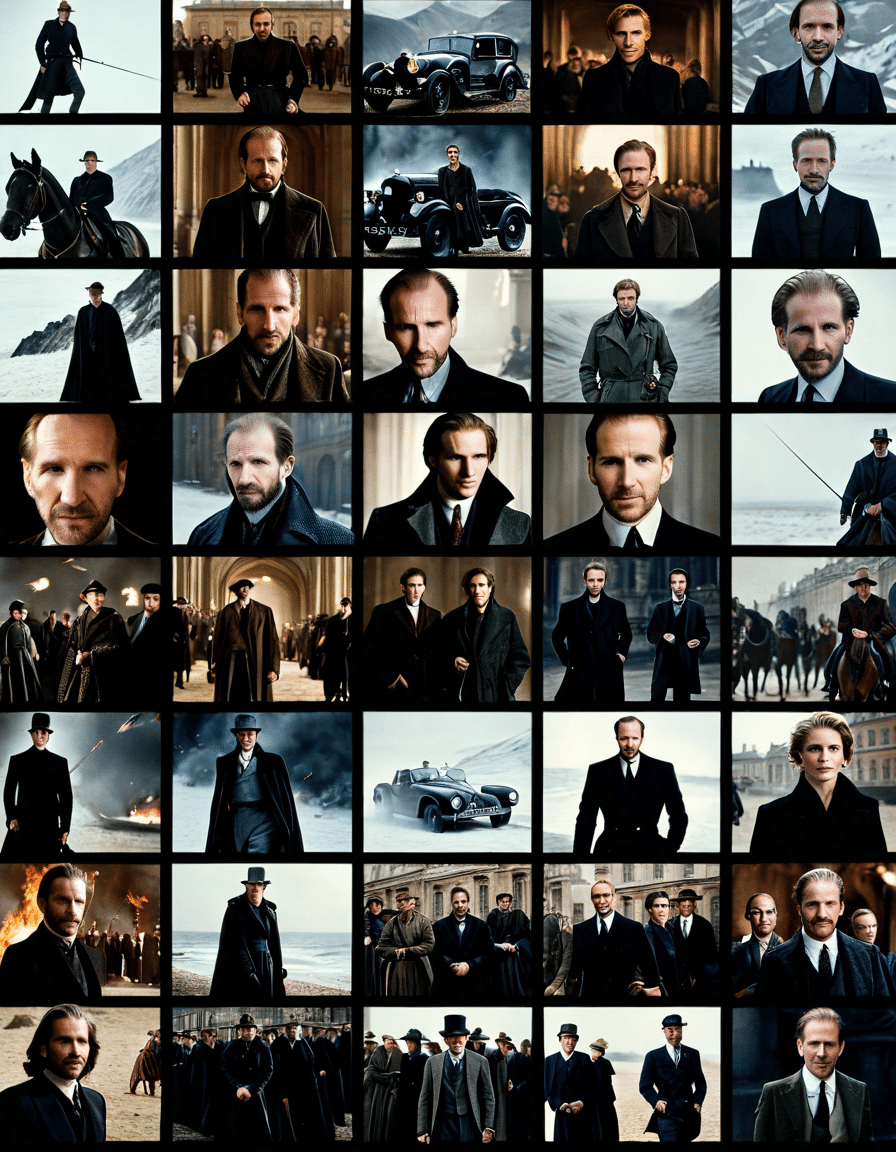
The Lasting Legacy of Ralph Fiennes’s Cinematic Contributions
Ralph Fiennes’s body of work has undeniably transformed the landscape of cinema, pushing narratives to new heights while inviting audiences to explore complex themes. His films have not only redefined genres but also provided a platform for profound discussions about humanity and morality. Each role Fiennes embraced sent ripples throughout the industry, inspiring filmmakers and actors alike to challenge conventions and rethink storytelling.
As we reflect on these transformative Ralph Fiennes movies and their impact, it’s clear they’ve done more than entertain. They’ve engaged viewers, compelling them to ponder significant issues. Ralph Fiennes’s cinematic contributions will likely be studied and celebrated for years to come, ensuring his legacy remains etched in the history of film.
Ralph Fiennes Movies That Changed Cinema Forever
The Versatile Trailblazer
Ralph Fiennes, a name synonymous with powerful performances, has an array of films that have truly set the stage for the future of cinema. From his haunting portrayal of Amon Goeth in Schindler’s List to the enigmatic Lord Voldemort in the Harry Potter series, Fiennes has consistently challenged his audience’s perceptions. Did you know that his performance in The English Patient helped redefine the romantic war drama? That film was so impactful it became a reference point in discussions about cinematic storytelling, shaping audiences’ expectations for the genre.
Speaking of expectations, Fiennes’ role in In Bruges showcased not just his dramatic chops but also his comedic timing, making an entirely new benchmark for dark comedies. Interestingly, the film’s success paved the way for other movies with similar tones, echoing the wit and grit presented in Hot Rod, a different kind of family-oriented comedy that doesn’t take itself too seriously.
Behind the Scenes
Fiennes isn’t just an actor; he’s a force behind the camera too. His directorial debut, Coriolanus, revealed a fresh take on Shakespeare that revitalized classical literature for modern audiences. In this adaptation, he brought a raw energy that, like the discussions surrounding the Disneyland Goofy lawsuit, captivated viewers in unexpected ways. It’s all about reimagining the familiar and giving it a punchy twist!
As we reflect on his contributions, consider how Fiennes has tackled roles that confront societal issues, similar to the layers of family dynamics found in Georgie & Mandy’s First Marriage. This film, while distinct from Fiennes’ oeuvre, mirrors how personal backstories can enrich narratives and elicit empathy from viewers. It’s fascinating to see how such themes persist through cinema, constantly reshaping our understanding of complex relationships.
Trivia That Hits Home
Now, let’s have some fun with a few trivia nuggets. Did you know Fiennes has twice portrayed characters that were deeply flawed but ultimately redemptive? His ability to delve into characters with multifaceted personas underscores the dramatic and comedic balance sought in contemporary storytelling. His contributions certainly resonate in the messaging around the latest presidential polls, as they showcase the art of persuasion and public perception in both cinema and politics.
Moreover, Fiennes’ characters often embody resilience, not unlike a player trying to succeed in the game Pummel Party, where teamwork and strategy reign supreme. His performances remind audiences that beneath the veneer of humanity lies a rich tapestry of emotion and motive, much like the tweets from celebrities that can spark debates, such as the viral rot in hell tweet. With Ralph Fiennes movies, there’s always a deeper story waiting to be unearthed, leaving an indelible mark on cinema history.
